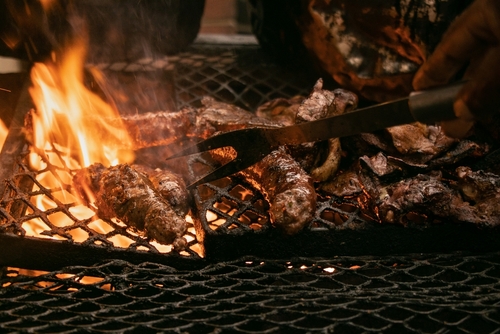Father’s Day is a time to honor the fathers and father figures who have shaped our lives. From fathers and grandfathers to uncles, stepdads, and beyond, the sentiment is universal. But how the day is celebrated varies across cultures, shaped by history, religion, and tradition.
For many living abroad, Father’s Day is not just a date on the calendar—it’s a chance to reconnect with loved ones, honor family traditions, and learn new ones from their adopted home.
At Remitly, we love learning how families around the world celebrate the people who matter most. Join us on a global tour of Father’s Day celebrations.
The Americas: heartfelt traditions and family time
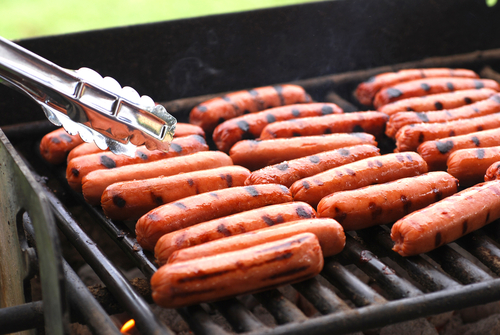
Across the Americas, Father’s Day is filled with heartfelt gestures, family gatherings, and food hot off the grill. While many countries celebrate on the third Sunday in June, each adds something unique to their celebration honoring dads.
United States: BBQs, bonding, and quality time
Father’s Day in the United States is celebrated on the third Sunday in June and has been an official holiday since 1972. Its roots go back to 1910, when Sonora Smart Dodd of Spokane, Washington, organized a church service to honor her father, a Civil War veteran and single parent to six children.
Most families celebrate by giving heartfelt cards or handmade gifts, doing outdoor activities like fishing or hiking, or having family barbecues. It’s a day filled with love and gratitude—and a great reason to spend quality time together.
Mexico: carreras, crafts, and comida
In Mexico, Día del Padre is also celebrated on the third Sunday in June with family gatherings, delicious meals, and meaningful gestures. Children often give their dads small gifts or crafts they’ve made in school.
A unique tradition in Mexico is the Carrera Día del Padre, a 21-kilometer Father’s Day race held in Mexico City. Thousands of fathers, children, and community members participate in this fun run, celebrating health, family, and community spirit.
Brazil: feasts, faith, and family fun
Brazil celebrates Dia dos Pais on the second Sunday in August. Chosen to honor São Joaquim, the patron saint of fathers, Brazil established the holiday in the 1950s as both a cultural and commercial event.
Today, many families attend church services in the morning and then gather for a big family feast. Traditional Brazilian barbecues with beef, pork, chicken, and sausage are common, and children typically give small gifts or handwritten notes to their dads.
Schools also organize recitals and performances, adding a communal aspect to the celebration. The emphasis is on family heritage, as many honor fathers, grandfathers, and great-grandfathers.
Asia: a blend of tradition, symbolism, and respect
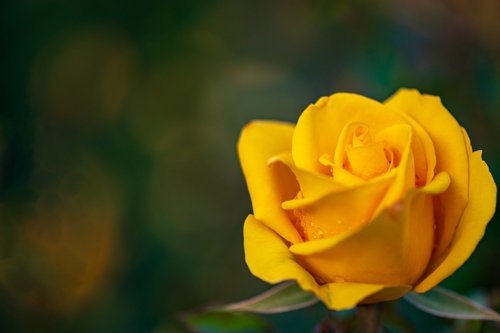
Across Asia, Father’s Day traditions reflect deep cultural respect for elders and family members, and celebrations often blend gift-giving with ancient symbolism.
Thailand: royal tributes and flower offerings
Thailand celebrates Wan Por on December 5, the birthday of King Bhumibol Adulyadej, the country’s longest-serving monarch. Deeply loved, respected, and often seen as a symbolic father of Thailand, King Bhumbiol’s birthday is a national holiday and Father’s Day.
Thais wear yellow, the color associated with the King, and children present their fathers and grandfathers with phuttharaksa (canna lilies) as a symbol of masculinity and respect. Families visit temples to make merit, and gather for special meals.
On December 5, fathers can ride free on the Bangkok Mass Transit System when traveling with their children, encouraging family bonding time.
Japan: yellow roses and gourmet dinners
In Japan, Chichi no Hi, is known for its thoughtful gestures. Children often draw pictures of their dads and present them with small gifts, like a favorite snack. Families enjoy a special dinner together, often with dishes like sushi, wagyu, crab, or prawns.
One popular tradition is to give a yellow rose or sunflower, thanks to the Father’s Day Yellow Ribbon Campaign promoted in the 1980s, which emphasizes happiness and safety.
Nepal: spiritual rituals and ancestral reverence
In Nepal, Kushe Aunsi is celebrated in August or early September, depending on the lunar calendar. The day has deep spiritual roots in Hindu tradition, and children often perform pujas (prayers) to seek blessings. They may also touch their fathers’ feet as a sign of gratitude and respect.
For fathers who have passed, families will also visit sacred sites such as Gokarna Temple to say prayers and perform rituals of remembrance. In this way, Kushe Aunsi became about celebrating living fathers and honoring all paternal ancestors who are no longer alive.
Europe: sacred saints and sentimental celebrations
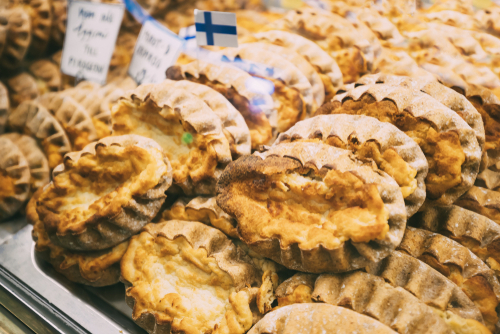
In Europe, Father’s Day has deep historical and religious roots, celebrated as early as the 16th century. In many countries, Father’s Day evolved from the Catholic tradition of the Feast of St. Joseph, while in others it came from post-war commercial campaigns. Today’s observances range from spiritual to spirited, with heartfelt traditions passed down through generations.
Germany: hiking, beer, and brotherhood
In Germany, Vatertag is celebrated on Ascension Day, 40 days after Easter. The tradition began in the Middle Ages as a religious celebration honoring Gott, den Vater (God, the father), but by the 18th century, it had transformed into a family day to honor the fathers of each household.
During this time, villagers pulled men in carts to the center of the village and celebrated. The man with the most children in the village would receive a prize, often a ham.
Today, it’s also known as Männertag (Men’s Day) or Herrentag (Gentlemen’s Day), and has evolved to become associated with male camaraderie and friendship. Groups of men (whether fathers or not) take hikes or bike rides through the countryside, pulling wagons filled with food, beer, and snacks. Many German men take the next day off work to nurse their hangovers, as this day rivals the amount of drinking that occurs during Oktoberfest.
France: lighters and love notes
France’s fête des Pères is celebrated on the third Sunday in June and was made official after World War II.
A company named Flaminaire manufactured lighters and struggled to market their products after WWII. The company’s founder, Marcel Quercia, came up with the creative solution to launch an unofficial Father’s Day campaign in 1949, encouraging children to give their fathers lighters for the occasion. The idea succeeded, and France then officially acknowledged fête des Pères as a holiday a few years later.
In recent years, the mindset has shifted to meaningful experiences rather than material gifts. Children will often gift their fathers handmade cards or drawings, and families spend time outdoors with picnics or hikes. Some families even volunteer together, honoring the nurturing spirit of fathers.
Finland: flags and breakfast in bed
In Finland, Isänpäivä is celebrated on the second Sunday in November and is marked by flying the national flag. Kids usually surprise dad with breakfast in bed, featuring favorites like karjalanpiirakka (Karelian pies), fresh bread, cheese, eggs, and strong coffee.
Quality family time is the focus, rather than gifts, though children will still make cards or crafts to show their love and gratitude. Despite the November cold, families will often enjoy a hike together or a trip to the sauna, further emphasizing the simplicity and joy of togetherness.
Middle East & Africa: tradition, gratitude, and community
Egypt: summer solstice strength and blessings
Egyptians celebrate Father’s Day on June 21, the summer solstice. The timing is intentional as it symbolizes strength, vitality, and power, traits associated with fatherhood.
Introduced in the 1950s by journalist Mustafa Amin, who was inspired by Mother’s Day and advocated for celebrating fathers as well, the day has gained traction over the years. Fathers in Egypt are viewed as protectors, full of wisdom and guidance. These values are honored with small gifts and homemade meals.
South Africa: braais and bonding
In South Africa, Father’s Day is celebrated on the third Sunday in June. South Africans use the day to acknowledge the role fathers play in nurturing children and strengthening communities.
Many families host braais—South Africa’s beloved version of a barbecue—complete with grilled meats, salads, and outdoor fun. Family outings, picnics and fishing trips are also common to reinforce the bonds between families and their children.
Oceania: outdoor fun, church, and springtime joy
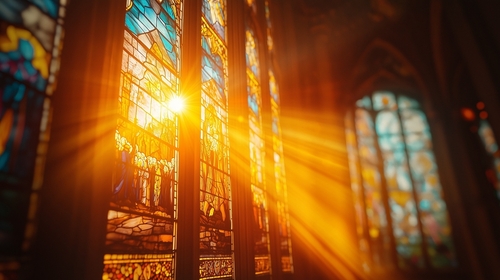
Australia: gift stalls and grilling
In Australia, Father’s Day takes place on the first Sunday in September, marking the beginning of spring. Some say this date was chosen to spread out Mother’s Day and Father’s Day celebrations, while others believe it was a commercial effort to boost retail sales.
Families often spend the day together, enjoying outdoor activities, sharing meals, and giving gifts to show appreciation for their fathers.
One unique tradition is the gift stall. During the days leading up to the holiday, schools often set up stalls selling inexpensive items like mugs or socks to make it possible for children to pick out and purchase their own gift for dad. Homemade meals and heartfelt letters are also common.
Fiji: church blessings and respect
In Fiji, Ni Da is celebrated on the second Sunday of September, combining faith, family, and Fijian hospitality.
Most families start the day at church, where fathers are recognized and receive blessings and prayers. After church, families will get together for a large Sunday meal, featuring traditional foods like lovo (feast of meat and vegetables), palusami (taro leaves baked in coconut cream), and fresh fruits.
Kids gift handmade cards and crafts, and the day is spent reflecting on the role fathers play in teaching values like respect, service, and humility.
Celebrating Father’s Day from abroad

For immigrants and expats, Father’s Day can feel especially emotional. It’s a reminder of distance, but also of the deep bonds that exist between kids and their father figures.
Even small gestures can make a big impact, such as:
- Sending money or gifts through Remitly to show you’re thinking of them
- Scheduling a video call to connect or share a meal together
- Mailing a handwritten letter or photo that brings a personal touch
- Sharing a favorite memory or tradition from your childhood
No matter where you are, this Father’s Day is a chance to celebrate love without borders.
FAQs
When is Father’s Day celebrated globally?
It depends on where you live. In the United States, and many other countries including Canada, Argentina, the Czech Republic, Panama, and Hungary, Father’s Day is celebrated on the third Sunday of June.
However, not all countries celebrate on the same date. Many celebrate on March 19, including Italy, Portugal, Spain, and Honduras. In most Scandinavian countries, Father’s Day is celebrated on the second Sunday in November. In Oceanic countries, it’s held on the first Sunday in September.
Is Father’s Day a public holiday in any country?
Yes, Father’s Day is a public holiday in some countries, including Thailand (December 5) and Germany (Ascension Day).
Why do different countries celebrate Father’s Day on different dates?
Dates often reflect religious or historical associations, such as King Bhumibol’s birthday in Thailand or Ascension Day in Germany.
How did Father’s Day start?
Modern day Father’s Day celebrations began in the 1900s thanks to Sonora Smart Dodd. Dodd’s father, a Civil War veteran, was raising her and her five siblings alone after her mother died. Dodd wanted to honor her father and campaigned for a day recognizing all fathers. She started by convincing her church to hold a service in 1910, but it wasn’t until 1966 that President Lyndon B. Johnson declared Father’s Day an official holiday.


